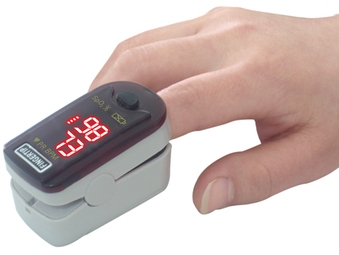DIY cardiac rehab?

VividDawn
Posts: 111 Member
I was born with various/severe heart defects, and my heart has always been kind of weak. I wasn't expected to live a year, then to kindergarten, then to teens, graduate high school...so I'm way over due my expiration date 
Now that I'm 38, it's beginning to do REAL heart failure (I'm retaining fluids easier if I don't watch my sodium close, having more arrhythmias, etc.)
After my last round of tests, my doctor said my heart is strong... or at least it is, for MY case. To a normal person, it would be really weak. And I have way less energy than I did even 5 years ago. I want to make it into my 60s, which he said is very possible if I keep taking care of myself... not smoking, not drinking, staying active - which is hard when I get so out of breath with even simple activities like going up a flight of stairs.
I asked about cardiac rehab to get my heart a little stronger, because literally walking for 5 minutes and I'm about to konk out. He said insurance won't pay for it, because I haven't had open heart surgery (in the last 35 years) or had a regular heart attack (I did have to be defibrillated last year, though, because I had an "episode" of some type of weird tachycardia).
My cardiologist said that if I just start walking a few times a week, will be good. I worried about straining my heart, and he said it's just like any other muscle...if you work it, it'll get stronger. SO after a year of being lazy, I finally got off my duff and went for a walk. UGH! 5 minutes and I was done!
I need to push myself to get stronger, but I don't want to end up pushing too hard and end up straining my heart and backfiring by making it weaker/failing faster. Anybody know how I would go about getting a good balance of "push yourself, but not over do it"?
I have an oximeter to keep track of my oxygen levels and heart rate.
I see my cardiologist on the 15th, and will ask him for more specific details and advice. But I just want to know if anybody has gone through cardiac rehab and how that works in a professional program.
Now that I'm 38, it's beginning to do REAL heart failure (I'm retaining fluids easier if I don't watch my sodium close, having more arrhythmias, etc.)
After my last round of tests, my doctor said my heart is strong... or at least it is, for MY case. To a normal person, it would be really weak. And I have way less energy than I did even 5 years ago. I want to make it into my 60s, which he said is very possible if I keep taking care of myself... not smoking, not drinking, staying active - which is hard when I get so out of breath with even simple activities like going up a flight of stairs.
I asked about cardiac rehab to get my heart a little stronger, because literally walking for 5 minutes and I'm about to konk out. He said insurance won't pay for it, because I haven't had open heart surgery (in the last 35 years) or had a regular heart attack (I did have to be defibrillated last year, though, because I had an "episode" of some type of weird tachycardia).
My cardiologist said that if I just start walking a few times a week, will be good. I worried about straining my heart, and he said it's just like any other muscle...if you work it, it'll get stronger. SO after a year of being lazy, I finally got off my duff and went for a walk. UGH! 5 minutes and I was done!
I need to push myself to get stronger, but I don't want to end up pushing too hard and end up straining my heart and backfiring by making it weaker/failing faster. Anybody know how I would go about getting a good balance of "push yourself, but not over do it"?
I have an oximeter to keep track of my oxygen levels and heart rate.
I see my cardiologist on the 15th, and will ask him for more specific details and advice. But I just want to know if anybody has gone through cardiac rehab and how that works in a professional program.
0
Replies
-
I haven't personally but my father did......and basically it consisted of walking on a treadmill, very slowly and for short durations at first and gradually increasing time and (very) gradually increasing both pace and incline (his was post heart attack rather than heart failure......I would wait to get more details from your cardiologist)
Good luck!1 -
Walk for 5 min this week, 6 minutes next week, 7 min the following week, etc. Slow & easy.
What your doctor said about rehab isn't necessarily true. They tend to make generalizations. Each insurance plan (in USA) makes its own rules. Check with your insurance yourself. You might be able to get a few sessions covered to get a program set up.3 -
Oh, boy. Be careful about asking that type of question on an open forum full of knowitalls like we are.
3 -
A question that should be asked to a physio and a doctor not random strangers. Everyone's rehab will be different because everyone heart problem is different.0
-
your cardiologist should be able to refer you into a cardiac rehab clinic and the people in places like that are trained to tailor a program to your capabilities. i've been open heart surgery twice. the first time, i did rehab on my own. the second, i went through a stint in a rehab clinic, which was quite helpful. your mileage may vary... in the center i worked out in, i wore a heart monitor that let me and the nurse track my heart rate and electrical activity. i had a very detailed exercise routine during my time there and assistance in setting up a program once my time there was done. they also offered advice on diet, sleep and so on, none of which was much of an issue for me.
people's ages ranged from the low 50s (like me) to high 80s (a guy that had been using the facility three times a week for at least a year) and some had quite complicated health histories. the nurses there told me they were used to working with a wide range of people and capabilities. in my experience, they monitored people carefully and designed programs for them that pushed them just enough. hopefully, you will be in that sort of center.
all that said... life's a risk, right? pay attention to what your doctor says, do your own research and make decisions that reflect your priorities.1 -
Are you sure you can't get coverage for cardiac rehab? Medicare covers it for people with CHF -- I know you are too young for Medicare, but that often suggests that other insurance covers it as well.
If you have to "go it alone", you might have the option of finding a qualified trainer at a hospital-based fitness center to help get you started. I work with a couple of CHF clients who are in the same boat and we have other trainers who are qualified as well.
If you are clinically stable, esp if you have an AICD, then moderate exercise is probably safe (obviously go w/the cardiologist recommendations). A fairly recent review of exercise treatments for patients w/CHF showed virtually no exercise-related incidents among hundreds of study subjects.
If you just want to start some activity, then walking for short periods of time is likely a "do no harm" type of activity until you get more specific guidelines from the cardiologist.0 -
Are you sure you can't get coverage for cardiac rehab? Medicare covers it for people with CHF -- I know you are too young for Medicare, but that often suggests that other insurance covers it as well.
If you have to "go it alone", you might have the option of finding a qualified trainer at a hospital-based fitness center to help get you started. I work with a couple of CHF clients who are in the same boat and we have other trainers who are qualified as well.
If you are clinically stable, esp if you have an AICD, then moderate exercise is probably safe (obviously go w/the cardiologist recommendations). A fairly recent review of exercise treatments for patients w/CHF showed virtually no exercise-related incidents among hundreds of study subjects.
If you just want to start some activity, then walking for short periods of time is likely a "do no harm" type of activity until you get more specific guidelines from the cardiologist.
I actually do have Medicare (and Medicaid) because I'm on Disability. I had a stroke 10 years ago (because of A-fib), kept trying to work, and I just can't keep up with stuff. Even simple desk jobs end up being too much, if I try to go every day of the week, eventually my heart MAKES me rest by freaking out and putting me in the ER. So now I supplement my income by working from home on my good days (I repair small gas engines during good weather, do article writing on the internet in the winter).
This is what's frustrating. Mentally, I'm all rarin' to go... physically, I'm so "bleh", and it's getting worse. I don't want to be home bound (or even bed bound) before I'm a senior citizen! LOL
No ICD or pacemaker, because my heart is so funky that they actually wouldn't work. I've had a couple ablations and I do take Metoprolol, which helps keeps my rhythm steady, a little bit.0 -
The doc already Okay-ed you to walk. If 5 mins of walking felt like you pushed yourself too much,
do 3 mins three times a week. Eventually build up to 3 mins 7 times a week.
How does the oximeter work? Does it let you know if you are overdoing something?
You might befit from other forms of exercise like Tai Chi or Yoga. Get a certified trainer for your first few sessions. Check with the doc of course.0 -

Already supposed to be doing yoga for my back... Really need to start actually doing it LOL
The oximeter measures your heart rate (beats per minute), and how much oxygen in your blood via capillaries in your finger1 -
Looking at the website below, it seems like you might possibly qualify for regular rehab (not intensive), under stable chronic heart failure?
https://www.medicare.gov/coverage/cardiac-rehab-programs.html
I know a younger person with near heart-transplant levels of heart failure who was able to get cardiac rehab without having open heart surgery or a heart attack (diagnosed after unexplained tiredness and rapid weight gain). It consists of treadmill, with monitoring.
Worth double checking on with your insurance, and clarifying with your doctor (maybe he was thinking intensive not regular?).0 -
I was thinking of asking doc, and also going to the cardiac rehab office too, see what they say (in the same hospital, they'd have all my records)0
-
Ask the cardiologist. Medicare will not cover actual cardiac rehab unless you've had open heart surgery or an MI recently. They will cover a certain number of outpatient physical therapy visits per year. The cardiologist ought to be able to find out if any of your particular diagnoses would be covered.
Walking will get easier with time, so don't give up just because 5 minutes is hard. Best of luck!0 -
MelissaPhippsFeagins wrote: »Ask the cardiologist. Medicare will not cover actual cardiac rehab unless you've had open heart surgery or an MI recently. They will cover a certain number of outpatient physical therapy visits per year. The cardiologist ought to be able to find out if any of your particular diagnoses would be covered.
Walking will get easier with time, so don't give up just because 5 minutes is hard. Best of luck!
This. Change the terminology. Physical therapy rather than cardiac rehab, which has a specific clinical meaning.0 -
Be careful about doing yoga on your own if you are new to it. It is important to take care of your back-- some of the moves related to the back are not helpful unless you have a teacher or prior experience. You probably have the experience /background -- just wanted to point that out in case.Already supposed to be doing yoga for my back... Really need to start actually doing it LOL
The oximeter measures your heart rate (beats per minute), and how much oxygen in your blood via capillaries in your finger
1 -
I went and looked because I had to for a patient anyway. The diagnosis you need based on your own description is: "I89.0 - lymphedema, not elsewhere classified". Medicare will pay someone to teach you exercises to reduce the swelling in your extremities. Obviously, your doctor may know.something better after you see him. hope that helps get you what you need.0
This discussion has been closed.
Categories
- All Categories
- 1.4M Health, Wellness and Goals
- 394K Introduce Yourself
- 43.9K Getting Started
- 260.3K Health and Weight Loss
- 176K Food and Nutrition
- 47.5K Recipes
- 232.6K Fitness and Exercise
- 430 Sleep, Mindfulness and Overall Wellness
- 6.5K Goal: Maintaining Weight
- 8.6K Goal: Gaining Weight and Body Building
- 153.1K Motivation and Support
- 8.1K Challenges
- 1.3K Debate Club
- 96.4K Chit-Chat
- 2.5K Fun and Games
- 3.9K MyFitnessPal Information
- 15 News and Announcements
- 1.2K Feature Suggestions and Ideas
- 2.7K MyFitnessPal Tech Support Questions








